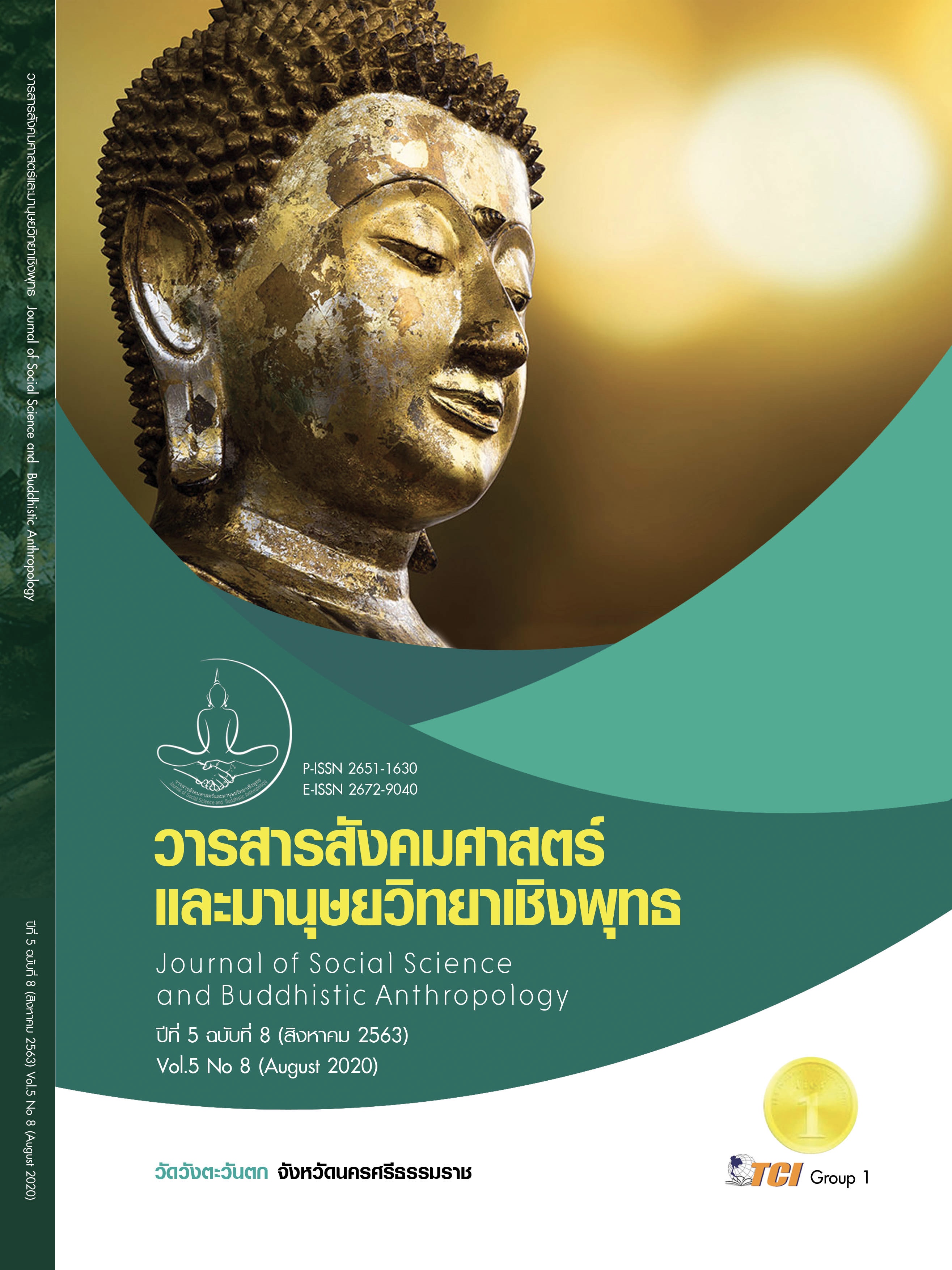ENGLISH LANGUAGE NEEDS OF OPERATIONAL EMPLOYEES IN CHONBURI INDUSTRIAL ESTATES
Keywords:
Operational Employees, Chonburi Industrial Estates, English Language NeedsAbstract
This research article aimed to study and compare the levels of English language needs of operational employees in Chonburi industrial estates. The research tool was the open-ended rating scale questionnaire. Questionnaires were used with 400 operational employees, selected by using the Table of Taro Yamane, with the confidence at 95% and error at ±5%, and optained by using an accidental sampling. The statistical data analysis comprised frequency, percentage, mean, standard deviation, t-test, content analysis and one-way ANOVA. If there were any differences, the data would be analyzed and compared by Scheffe. The results indicated that most of operational employees were males, aged between 25 - 29 years old, graduated with a bachelor’s degree, and had 1 - 5 years of work experience. In terms of English language needs, reading was the most needed skill for reading emails, documents or product details in English. Listening and speaking skills were needed for participating in work-related conversations. Writing skill was needed for writing English emails to either Thai or foreign colleagues. When classifying by personal status, it was found that male employees aged between 25 - 29 years old, with a master's degree and more than 16 years of work experience had the highest level of English language needs. The overall differences in the levels of operational employees’ English language needs compared by personal status showed that there was no difference in gender. Employees aged between 25 - 29 years old had higher needs than those aged between 35 - 39 years old. Employees with a high vocational certificate, bachelor's and master's degrees had higher needs than those with lower than a high vocational certificate. Employees with 1 - 5 years of work experience had higher needs than those with less than 1 year and 6 - 10 years of work experience. Also, employees with 11 - 15 years of work experience had higher needs than those with 6 - 10 years of work experience.
References
กฤษณะ โฆษชุณหนันท์. (2559). การใช้ภาษาอังกฤษเพื่อการสื่อสารของวิศวกรไทย: กรณีศึกษาบริษัทญี่ปุ่นในนิคมอุตสาหกรรมอมตะนคร. วารสารสุทธิปริทัศน์, 30(93), 146 - 159.
กองความร่วมมือการลงทุนต่างประเทศ. (2562). รายงานและสถิติการลงทุนจากต่างประเทศ รายเดือนสะสมปี 2562 (มกราคม-ธันวาคม). เรียกใช้เมื่อ 2 กุมภาพันธ์ 2563 จาก https://www.boi.go.th/upload/content/Q4%202562_5e3b87320a255.pdf
ธานินทร์ ศิลป์จารุ. (2557). การวิจัยและวิเคราะห์ข้อมูลทางสถิติด้วย SPSS และ AMOS (พิมพ์ครั้งที่ 15). กรุงเทพมหานคร: ห้างหุ้นส่วนสามัญบิสซิเนสอาร์แอนด์ดี.
มณี จิระนภากุล. (2539). A survey of language needs for communication by Thai engineers. Bangkok: Department of Applied Linguistics, Graduate School Mahidol University.
โรงงานอุตสาหกรรมไทย. (2554). นิคมอุตสาหกรรมในประเทศไทย. เรียกใช้เมื่อ 2 กุมภาพันธ์ 2563 จาก http://thailandindustry.blogspot.com/2012/03/blog-post_ 19.html
สภาอุตสาหกรรมจังหวัดชลบุรี. (2563). จำนวนโรงงาน. เรียกใช้เมื่อ 2 กุมภาพันธ์ 2563 จาก www.shorturl.at/mBNST
อานนท์ ไชยสุริยา. (2552). การใช้ภาษาอังกฤษของบุคลากรในอุตสาหกรรมปิโตรเลียมและ ปิโตรเคมีในภาคตะวันออกของประเทศไทย. ใน การจัดประชุมวิชาการ เวทีวิจัยมนุษย์กับสังคม. พริกหวานการพิมพ์.
Arapoff, N. (1967). Writing: A thinking process. TESOL Quarterly, 1(5), 119-120.
Crystal, D. (2546). English as a global language. Cambridge: Cambridge University Press.
Hutchinson,T.& Waters, A. (1994). English for Specific Purposes. Cambridge : Cambridge University Press.









